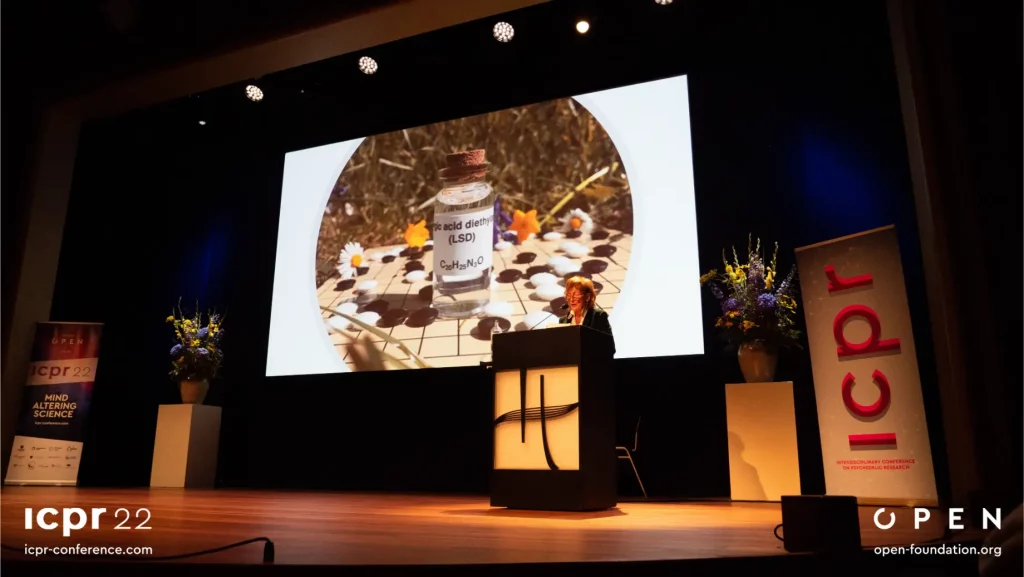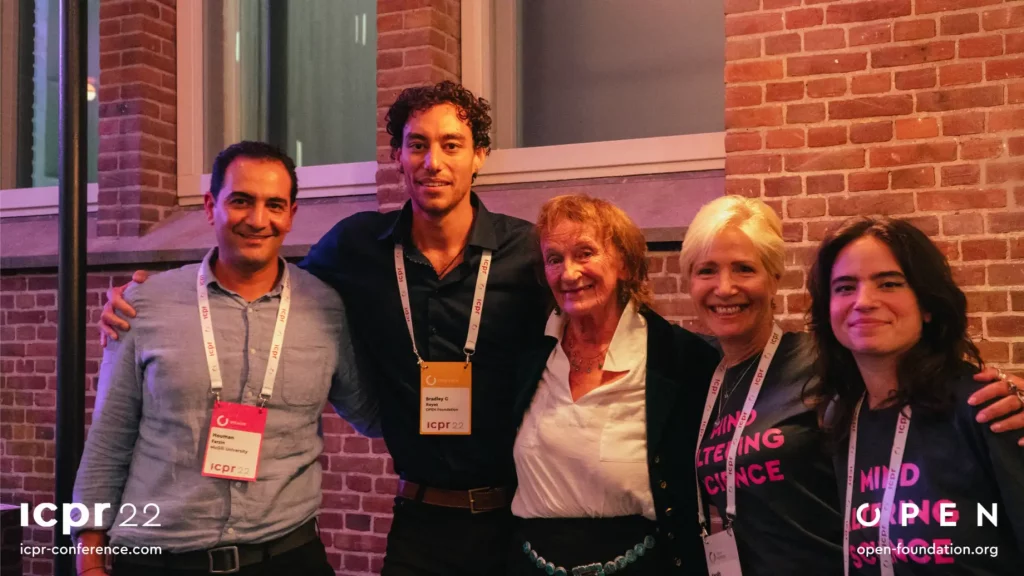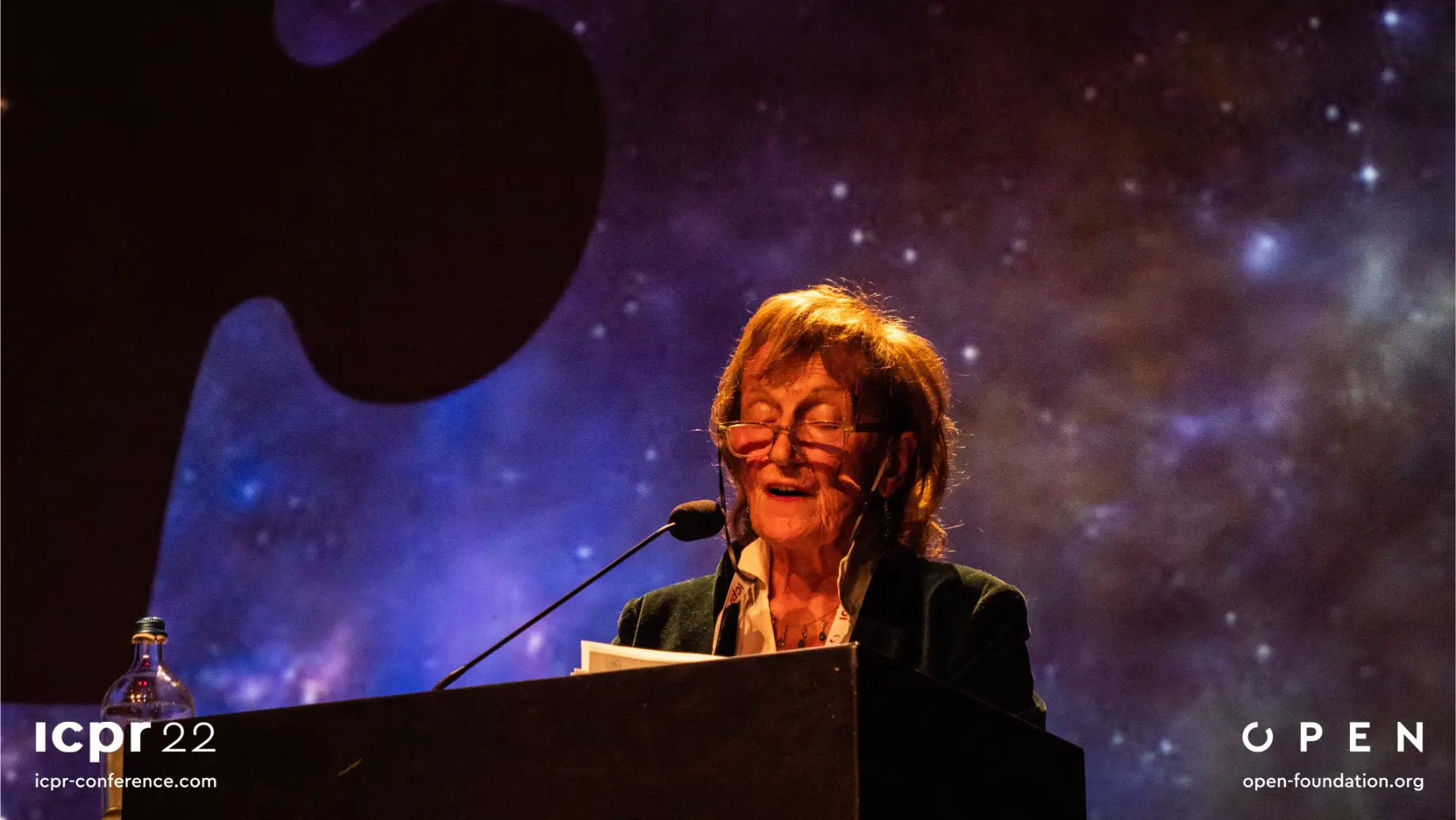On the evening of 22nd May, 2025, psychedelic research pioneer and elder, Amanda Feilding passed away.
Amanda Feilding was the visionary founder and director of The Beckley Foundation, a UK-based nonprofit impulsing psychedelic research, educating the public about the healing potentials of these substances, and driving international drug policy reform. Beckley’s impact was largely driven by Amanda’s singular vision. Amanda was known for her strong personality, quixotic mind, and an idiosyncratic combination of British aristocracy and psychedelic sensibilities. She was strongly motivated by psychedelics’ ability to positively drive human evolution, and the senselessness of the drug war. At the end of this post, you can find an exclusive interview by OPEN Foundation with Amanda Feilding.

As she expressed in the foreword to Ergot Alkaloids, reflecting on the prohibition of LSD, “Sadly, the human animal’s remarkable potential for brilliance has time and again been equaled by its potential for blindness.”
Amanda was a strong advocate for drug policy reform, often speaking of the “tragedy of prohibition” and the importance of having drug policy based on scientific evidence rather than misinformation and political agendas. Her trailblazing efforts have served to reopen doors to psychedelic research, overturning decades of unscientific and politically motivated global drug policies.
Realising that the most effective way in overcoming the taboo and stigma around psychedelics was through conducting high quality scientific research. Over the years, through the Beckley Foundation, Amanda spearheaded numerous influential research collaborations that have shaped psychedelic science as we know it.
Notably, she co-founded the Beckley/Imperial Psychedelic Research Programme with Professor David Nutt, producing groundbreaking brain imaging studies on LSD and psilocybin with Dr. Robin Carhart-Harris. She partnered with Maastricht University to explore microdosing, with Johns Hopkins University to investigate psilocybin for smoking cessation, and with University and King’s College London to examine cannabis’ mental health effects. Her Beckley/Brazil collaboration focused on psychedelics and neuroplasticity and newer studies began exploring the effect of microdosing LSD for Alzheimer’s, alongside countless other groundbreaking research projects and publications shaped by her distinctive vision and influence. Moreover, countless individuals in the field, at some point in their lives, worked as Amanda’s personal assistant, before going on to become psychedelic researchers in their own right.
In a recent letter published on the Beckley Foundation’s website, Amanda shared that she had been undergoing immunotherapy treatment against liver cancer for the past several months, deciding that it was time to shift her focus away from her life’s work and instead enjoy her precious time with friends and family.
She wrote, “It is 60 years since I first tried LSD and discovered the extraordinary potential psychedelics have to help individuals and society. It struck me then that these were a ‘gift of the gods’ that could expand one’s vision and understanding of reality. And what an exciting journey I have been on ever since! I feel immeasurable gratitude towards all the people who have inspired me, collaborated with me, and supported me up the long and winding path that has slowly led us all to today’s psychedelic renaissance.”
No doubt, the pivotal work Amanda spearheaded and the legacy she leaves in her wake will ripple out for generations to come, not in the least through the many Beckley spin-offs that have emerged over the last couple of years. Whether through the continuation of research, deepening our understanding of the neuroscience of consciousness, or shifting perceptions around psychedelics and their many benefits, her influence will live on through the work of all of us in this space.
Psychedelics are the fruits of the gods – Interview with Amanda Feilding
* Feature image source: https://www.pharmaceutical-technology.com/features/amanda-feilding-medical-cannabis-psychedellics-reform/















